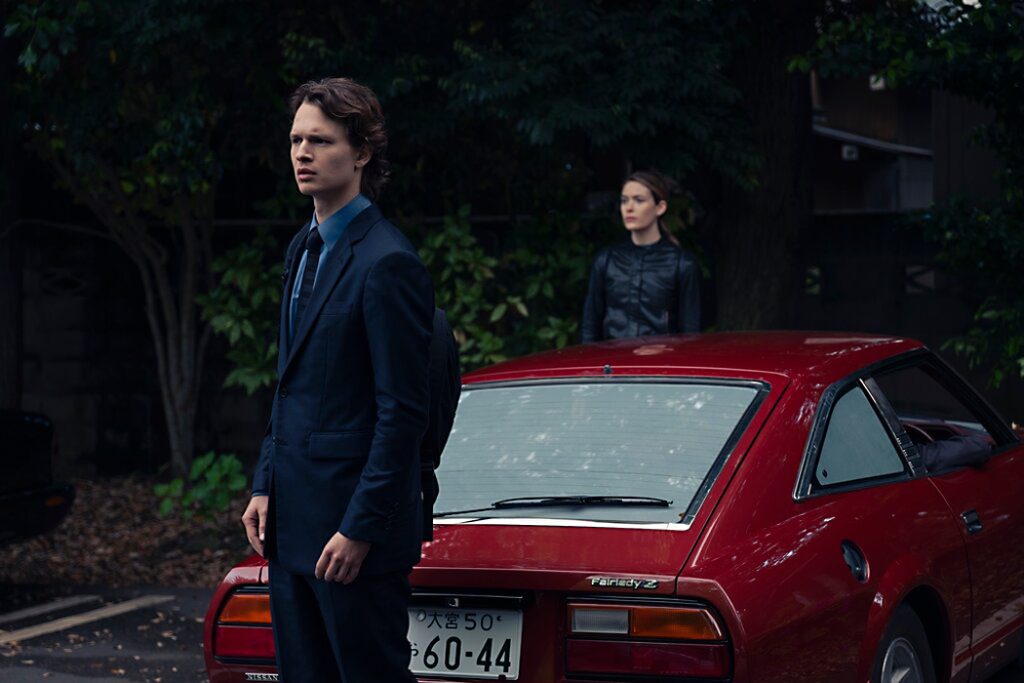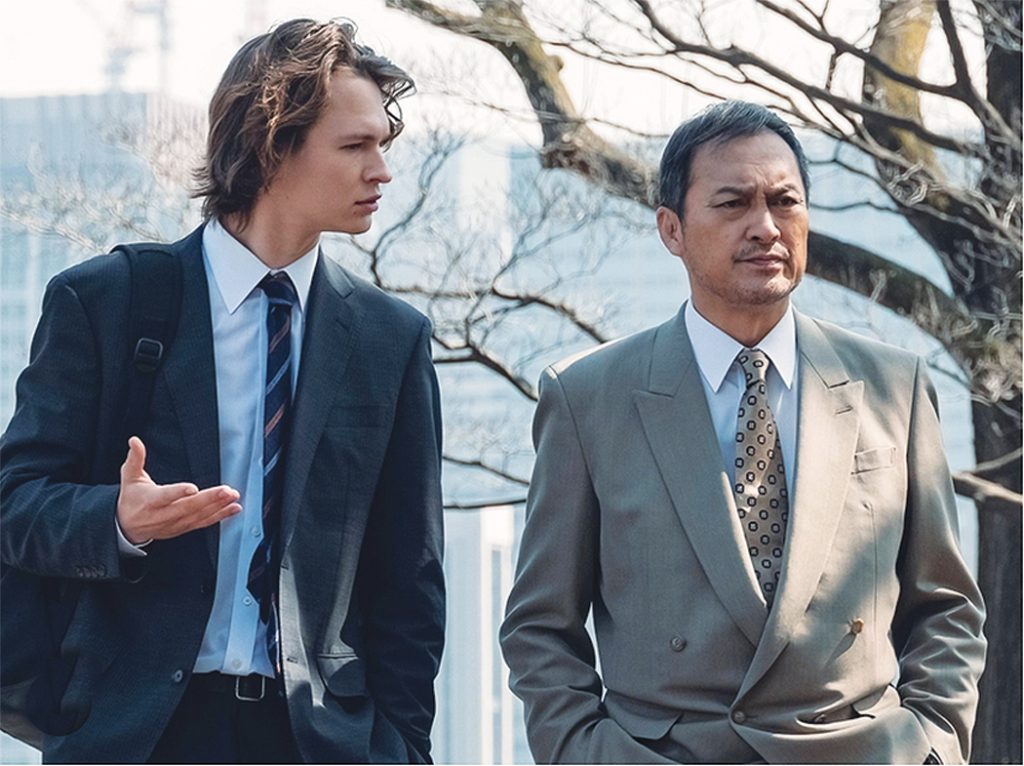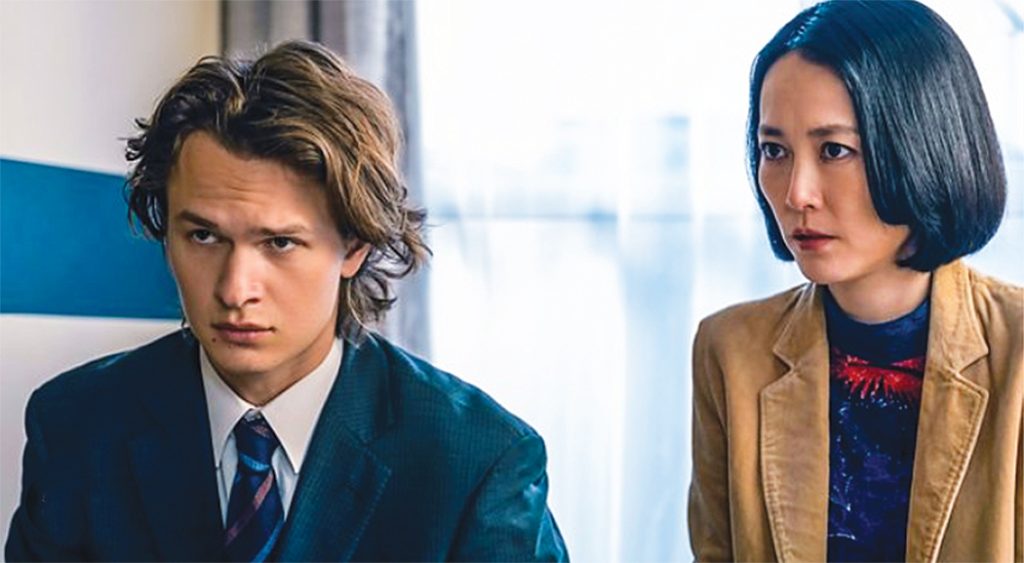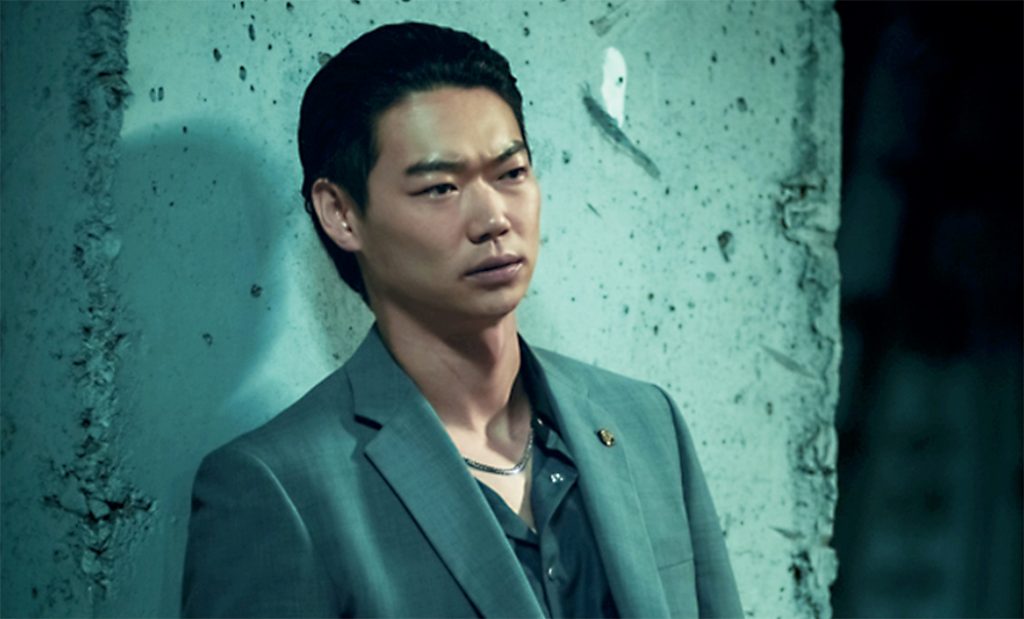
The 2009 memoir by Missouri-born journalist Jake Adelstein, An American Reporter on the Police Beat in Japan, inspired the adventurous TV series Tokyo Vice. Now streaming Season 2 on HBO Max, Tokyo Vice showcases three cultures. The first is the native Tokyo population of over 35 million. The second is the Americans living and working in Tokyo, some of whom speak Japanese. And the third culture is the yakuza, competing factions of Tokyo’s organized crime that Adelstein yearns to cover in his reporting. Yakuza is also the topic of Adelstein’s investigative books.
Front and center is the character Jake Adelstein, played by Ansel Elgort. Jake is an ambitious young man who becomes the first American reporter at Japan’s top-tier news journal, Meicho Shimbun, where the real Jake Adelstein worked for 12 years. Jake is an American who obviously feels drawn to Japan. Having learned Japanese, he moves to Tokyo to become a reporter and a writer.
Portraying Jake is the multitalented, baby-faced Ansel Elgort, who played Tony in Steven Spielberg’s 2021 remake of West Side Story. For Tokyo Vice, Elgort mastered Japanese enough to sound convincing to viewers. And at six-foot-three, nearly a foot taller than the average Japanese person, Elgort (as Jake) is visible in a crowd, a head above the rest.

Jake is a likeable young man, determined to understand Tokyo culture and become a good reporter. But he’s off to a rough start that could get him fired. Fortunately, his ability to make genuine personal connections attracts a perfect ally who can point him in all the right directions. Played by the superb Ken Watanabe, Detective Hiroto Katagiri is a seasoned, trustworthy officer of the law who appreciates Jake’s honesty about his struggle to fit in. Sensing Jake’s potential, Katagiri becomes his mentor as well as his collaborator, which changes everything.
Tokyo Vice reveals how the Japanese have little use for outsiders, except for practicing English. The word gaijin, meaning foreigner, signals racism in a culture that could hardly be more opposite to the lifestyle of the West. Americans strive to be casual and ritual-free, while Japan demands formality. At work, Meicho employees dress in suits and ties, greeting each other with a slight bow and addressing their superiors accordingly. Yakuza also upholds strict standards. Members honor their superiors even when they disagree, which prompts the verbal acknowledgement “hai” (yes) to confirm agreement. Jake is determined to learn the codes and customs, and especially to resist asking too many questions, which can cost someone their reputation, their job, or even their life.

The well-cast roster of characters includes Rinko Kikuchi as Eimi, Jake’s editor. Female superiors are rare in Japan, but Eimi is tough on rookie reporters, who are all male. When she reviews the guidelines for reporting, we learn the Meicho’s rules of journalism. The familiar five Ws are reduced to four (who, what, where, when). Asked about the missing why, Eimi explains, only if there’s room at the end, which is probably never. Jake also finds it curious that, unlike American reporters who scratch their way to the bottom of every investigation, reporters for the Meicho are more modest, guided by the principle “no more, no less.” Which seems to limit the depth of reporting, and thereby prevents—what? Discovering too much?

In addition to befriending some fellow reporters, Jake associates with Akira Sato (Sho Kasamatsu), a member of the Chihara-Kai clan who seems more accessible than the others—and one of the few yakuza with scruples. Sato’s big boss (oyabun) is Ishida (Shun Sugata), whom Jake meets unexpectedly, and we are all intrigued. Ishida is a dignified man in his 60s with a quiet presence that suggests rational thinking and power. And hearing him speak to Jake, we detect visible morals. It’s always inspiring to meet a mob boss with a human heartbeat.
And then there’s Jake’s friend Sam (Samantha, played by Rachel Keller), an attractive American with a secretive past. Sam manages the opulent Onyx nightclub, owned by a sleazy boss. The club caters to male clientele who enjoy high-priced alcoholic beverages while they socialize with lovely hostesses adorned in cocktail gowns. Sam makes sure that the beverages keep flowing and that the customers are happy. And she’s always looking out for the hostesses, making sure they’re treated respectfully. Sam is a caring manager who takes her job and her friendships seriously.
Director Alan Poul, who speaks Japanese, pulled this novel series together in Tokyo, somehow managing to film Season 1 during the Covid pandemic. The strong writing and casting sustain the intrigue, while the foreign location delivers something fresh and original. Conversations in Japanese include subtitles, but a good portion of the dialogue is in English. And apparently, cigarettes are a popular indulgence. There’s hardly a scene without Tokyo smoke.
The series creators do not limit themselves to the facts in the memoir, but as they say in Hollywood, who cares? The story hums. Tokyo Vice is a delivery system for mystery and mayhem in a far-away land. About remarkable characters that we fear or admire. And it makes for superb, nail-biting TV.
